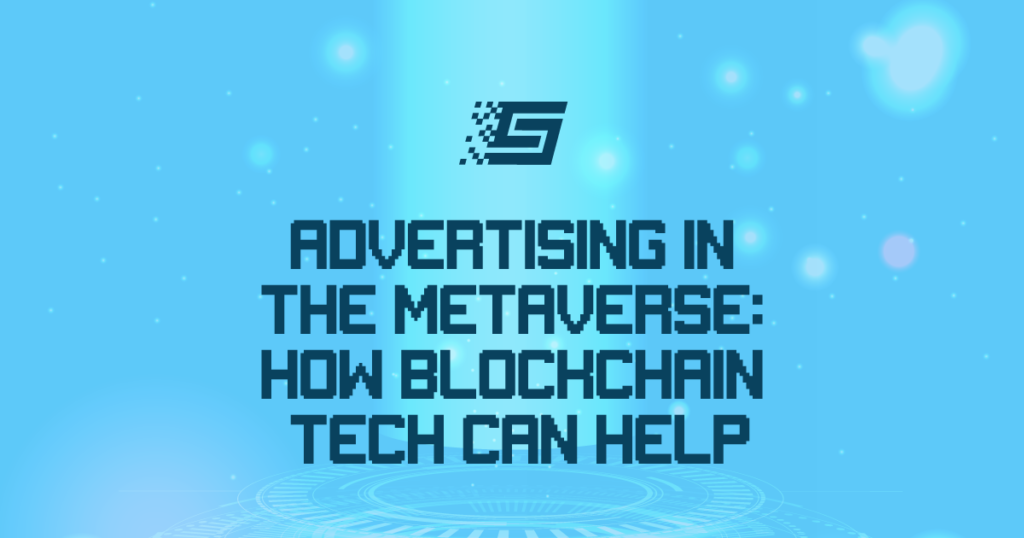
Advertising In The Metaverse: How Blockchain Tech Can Help
Advertising on the internet has become an essential part of doing business. Blockchain technology enables advertisers to reach new audiences via innovative online platforms. This blog will teach you about promoting and selling your products in the metaverse.
In the past, advertisers have had to rely on traditional methods to advertise their products. Newspapers, billboards, and advertising on TV are limited by geography and cost. With the rise of the internet, advertisers are able to use online platforms to reach new audiences. The metaverse provides a new and immersive way for businesses to interact with their customers.
The Future Of Online Advertising
The metaverse is an online virtual world in which users interact through avatars. It is changing the ways we interact with each other and how companies operate. This is where people will shop, play games, socialize, and do business in the future. The metaverse is an extension of our physical world, allowing users to interact virtually. This emerging new world presents exciting new opportunities and better ways of advertising.
Back in 2021, it was estimated that the global metaverse market size stood at $38.85 billion. In 2022, this figure rose to $47.48 billion and is expected to surge to $678.8 by 2030.
Branding products and services in virtual worlds can be used as promotional tools to encourage people to buy virtual representations of real-world goods or to “try” goods virtually before buying real-world items. These virtual items could be anything from clothing to furniture to accessories.
Metaverse Advertising Examples
Many brands are now investing in the metaverse. The rebranding of Facebook to Meta is perhaps the best-known example. In addition, Nike has created Nikeland on Roblox, and Adidas partnered up with Opensea, Unilever, and Gucci Vault to host the Rexona virtual marathon. Some other examples are Cheetos Halloween-Themed metaverse and Coca-Cola’s Creations hub.
How Blockchain Is Changing Advertising
Connecting with new audiences is one of the primary goals of most marketing strategies, and the metaverse is no different. However, most users in the metaverse are Millenials and Gen Z, a hard-to-reach group that is known to be skeptical about traditional advertising and is also very privacy-aware. Blockchain technology can help to overcome these challenges.
Web3 Identity
One of the big challenges with online advertising is establishing a user’s identity. These challenges became more significant with the recently introduced regulations on what data is allowed to be collected via third-party cookies and mobile device identifiers.
With the decentralized structure used by many virtual worlds, there is no third-party or first-party data, only zero-party data. In the metaverse, the users decide what private data they will share with your brand.
As users agree to share their data via blockchain tech, advertisers can identify who interacts with their ads. And this goes beyond tracking who clicked on the ad; you’ll be able to measure the interaction and emotional response to your product. This allows brands to deliver relevant offers based on viewers’ interests.
These personalized ads are based on user preference, interests, and behavior and can be used in real-time, meaning advertisers can collect data from the user and use it to deliver an ad tailored to their particular needs in real-time.
The identity of users is verified on the blockchain via web3-identity. Verified users will log in with their digital avatar in the metaverse or on any other web3 application. Web3 identity is permission-based, and advertisers use data collected from users to deliver more relevant advertisements.
Digital Wallets
Users can store different types of tokens and cryptocurrencies in a digital wallet. Digital wallets can be used to track and manage user and application data alongside traditional authentication methods.
A digital wallet is mainly used to store digital assets, but it can also be used to verify identity on web3 applications like the metaverse. From a user’s perspective, the login method with blockchain apps is similar to the traditional SSO sign-on.


